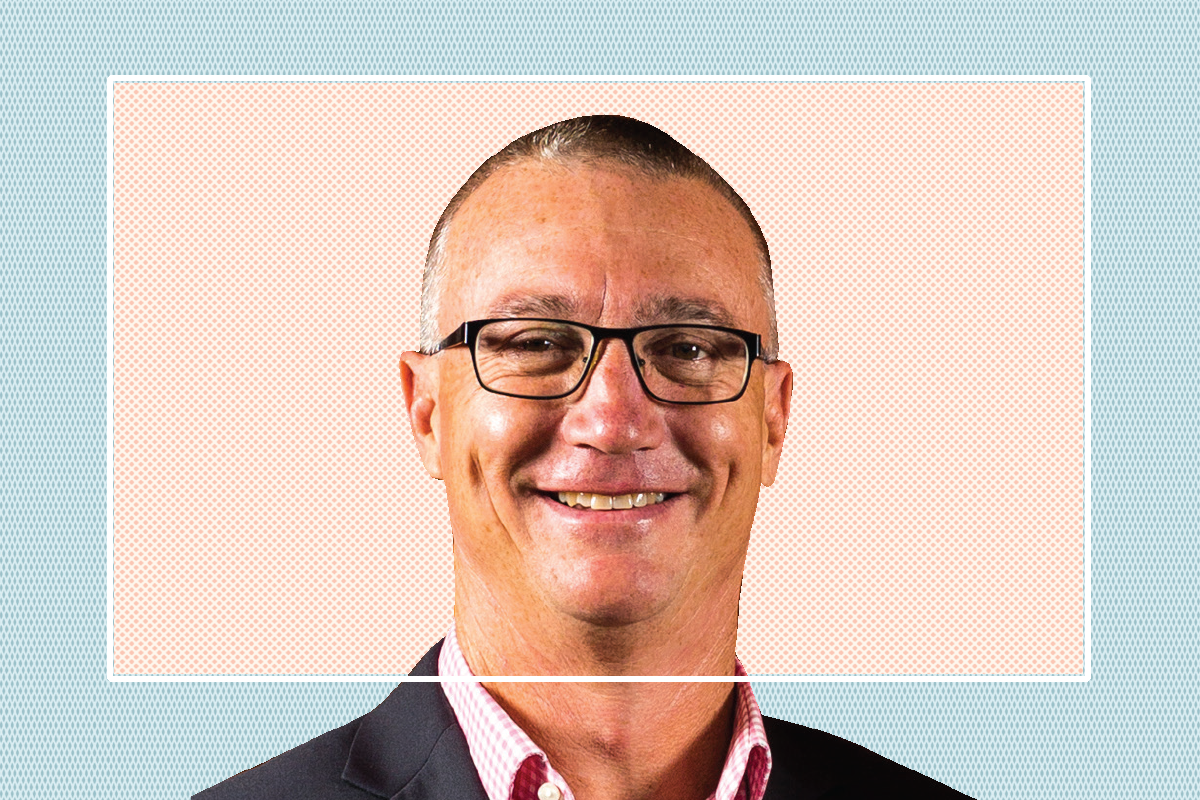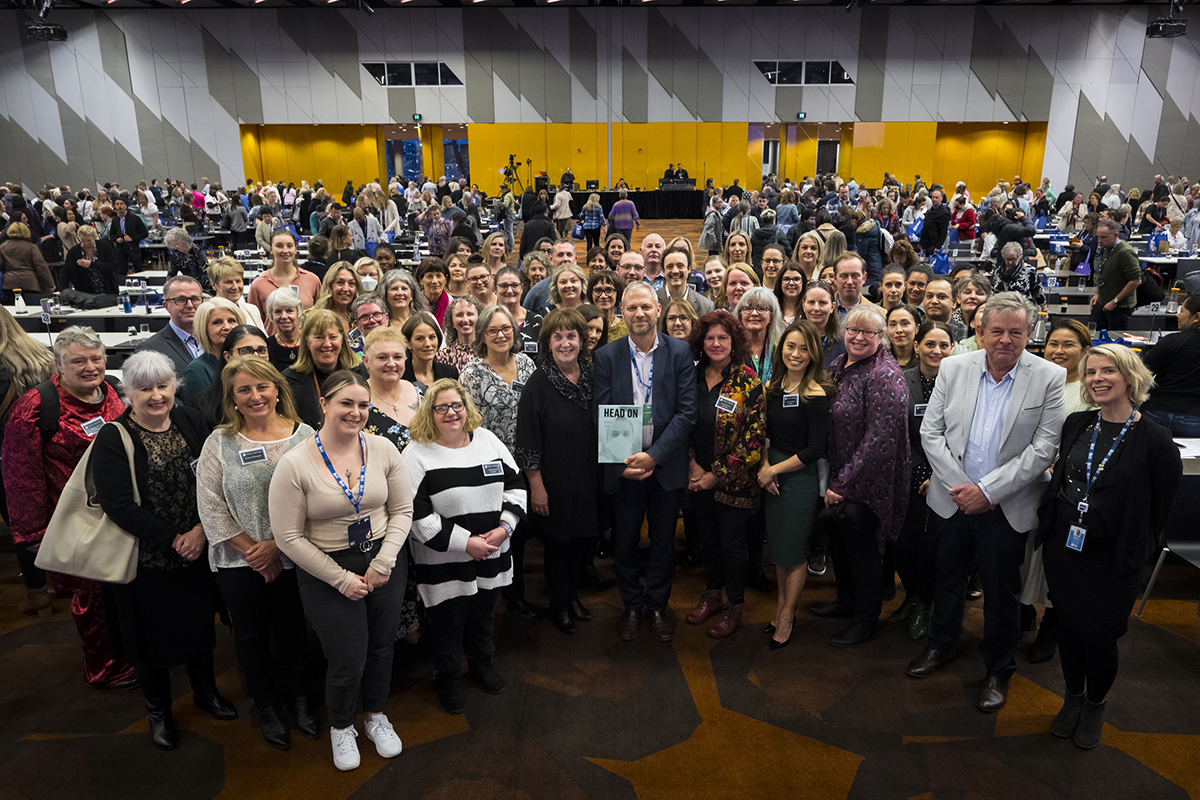
Glenn Taylor, CEO, NMHPV
…we know there are many who are simply unable to reach out for help as they are too exhausted or too overwhelmed to ask. Sometimes it feels easier to muddle through it alone. This strategy works for a while, but it has its limitations.
1. As COVID-19 cases rise and health services are getting busier, are nurses and midwives still finding the time to come to you for support and how are they feeling?
Demand for our services has increased as COVID-19 cases rise. Nurses and midwives are feeling overwhelmed with the current situation, exhausted from the unrelenting demands of their work and home responsibilities, and concerned for the health of the community, their families, friends and colleagues.
Whilst positive these nurses and midwives have asked for our support; we know there are many who are simply unable to reach out for help as they are too exhausted or too overwhelmed to ask. Sometimes it feels easier to muddle through it alone. This strategy works for a while, but it has its limitations.
We acknowledge it can be difficult and uncomfortable to share troubling thoughts, feelings and experiences as we – nurses and midwives – are conditioned to be the caregiver, correct? We remind you that ‘you’re only human’ and we all need to lean on someone else from time to time.
I would encourage any of our colleagues feeling in need of help to connect with someone – like NMHPV, your GP or a counsellor – with the skills to listen and support them through these challenging times. You are not alone! (You may like to develop your own self-care plan via our website).
2. What have nurses and midwives been saying about the impact on their work and personal lives?
Isolation and disconnection have been significant themes filtering through from those nurses and midwives seeking our support.
From a workplace perspective, the need to use PPE has created barriers and reduced their ability to connect with their colleagues, patients, residents and their families. They have spoken of an inability to debrief with colleagues, even in an informal sense, as everyone is feeling so worn out and they are reluctant to burden others.
Many of our participants live alone and when not at work they are confined to their homes, isolated from family and friends, and often without a way of connecting with someone close to them with real meaning.
3. With ANMF, NMHPV ran the ‘I’m only human’ campaign promoting NMHPV as a source of counselling and support. What was the main message of the campaign and why was it necessary?
We wanted to remind nurses and midwives that they are flesh and blood like the rest of society and that there is a limit to how much they can give of themselves to others. We wanted them to know that they matter and that we have their back and that we are a support for them to lean on.
This messaging is vital to nurses and midwives as they are prone to putting others’ needs ahead of their own and ignoring the warning signs. It is OK not to be OK.
We wanted to remind them there’s nothing wrong with reaching out for support.
4. What do you think nurses, midwives and nursing and midwifery students need to know about the impact of the COVID-19 outbreaks?
We each have a finite amount of internal resources at any given time. Working through these intense and very demanding outbreaks drains these resources and can have a negative impact on our physical, mental, emotional and spiritual health and wellbeing if left untreated.
Experiencing these acute stress events on a continual basis, without resting and replenishing, will result in the depletion of our reserves. This impacts on our ability to sleep and promote tissue repair, to enable adequate digestion, to concentrate on tasks and make important clinical decisions and to think clearly and take direction at critical times.
For many, when in this depleted state, we are unable to process events and find hope for the future and we are left in despair. This can leave us feeling out of control and unable to influence or impact on our lives or circumstances.
5. What kind of support does NMHPV offer? What can new participants expect after they have made the initial contact?
The support provided is profession-specific, one-to-one counselling, tailored to the needs of the individual. We assist our participants to identify their needs before helping them design a plan with strategies to address the challenges they face.
We believe that with a supportive professional guiding them through the experience, making change and achieving an optimum state of health and wellbeing is possible for anyone. New participants can expect to be treated with dignity, care and respect, free of judgement. We appreciate it can be difficult to ask for help and we want to make the experience as comfortable as possible.
6. What would you recommend in terms of care and support in this period of increasing cases?
When not at work, if possible, disconnect as much as you can. Connect with the people you trust and the activities and pastimes that bring you joy and satisfaction. Reflect on how you have responded during this period of increasing cases, identify what you have achieved and allow yourself to celebrate these positive outcomes.
These can reinforce your successes and instil confidence for the days and weeks ahead. It is also good to have a trusted support network around us, including family, friends, a GP and other health professionals, to promote positive connections and behaviours.
7. What’s the benefit of NMHPV being staffed by nurses and midwives with additional qualifications?
We are you! We have walked in your shoes, been where you are and we understand and appreciate the unique challenges that nurses and midwives face each and every day. We believe there is no one better placed than us to provide the validation, reassurance, information and support required to assist our colleagues with their sensitive health concerns.
This is an edited version of Glenn’s article published in the January edition of The Handover. This advice is also relevant to personal care workers.




